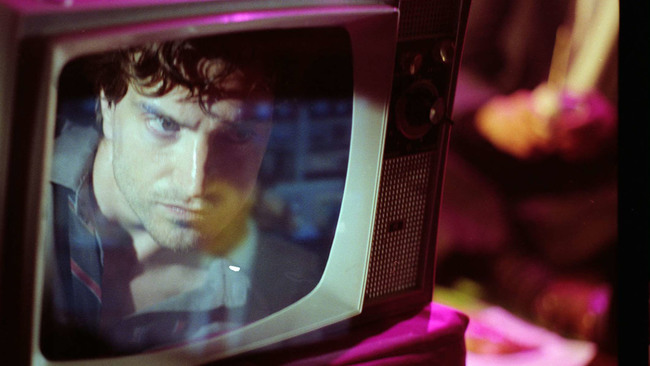Locarno 2017: Raúl Ruiz’s The Wandering Soap Opera

“Given that this edition of Locarno was its 70th, it was a shame that no special anniversary prize was created and bestowed on Raúl Ruíz's gloriously strange The Wandering Soap Opera,” finds James Lattimer at the House Next Door. “The film's central premise is that the best approximation for Chilean reality following the end of Augusto Pinochet's dictatorship is that of a soap opera or telenovela; after all, what other narrative form is flexible enough to accommodate all the pent-up collective spasms of seventeen years of repression? Yet even so, Ruíz manages to push even the wild shifts in tone and narrative contrivances permitted by the soap opera almost to breaking point, creating a fragmented, sinuous, endlessly inventive work whose incessant flights of fancy feel radical now, to say nothing of when it was shot nearly thirty years ago.”
“Shot over six days in 1990 as part of a workshop for actors and technicians in his native Chile, The Wandering Soap Opera has only recently been restored and finished by Ruiz’s wife and editor, Valeria Sarmiento, who is a director herself,” writes Notebook editor Daniel Kasman. The “arch conventions of TV have seeped into the real world and vice versa until everyone not only is a star in his or her own strange show, but is aware of and watches the shows others star in. Most (all?) of the film’s specific play with and parody of Latin American soaps was lost on me, but what came across wonderfully was the thrilling unity of adoration for popular pulp and dismay at a reality warping before the power of televised melodrama.”
“The Wandering Soap Opera plays like a scattered seven-part portmanteau, almost reminiscent of Monty Python at times but with the surrealism notched up to 11,” writes Rory O’Connor at the Film Stage. “It is in fact a continuous story told over seven days, although you might find that difficult to tell. Day 1 shows a man attempting to seduce his brother’s wife with his ‘muscles,’ which are actually raw cuts of meat. Day 7 shows a man with a string of spatulas connecting his neck to the wall. In between we see Kaufmanesque shows-within-shows, multiple people getting shot, references to political parties, lots of shouting and swathes of bizarre dialogue. A great many other peculiar things happen. Needless to say, little is explained.”
The Hollywood Reporter’s Boyd van Hoeij suggests that “it is useful to have the motto for the seventh day segment, ‘If you behave badly in this life, you’ll become a Chilean in the next,’ in the back of your mind, as it explains where Ruiz was coming from when he put the material together. . . . Throughout, the dialogue is overripe in that typical telenovela way and the actors have a ball as they take everything way too seriously, enunciating every word with great care and drawing out each look for dramatic effect. In the span of less than fifteen minutes, Ruiz manages to makes some salient points about how politics are, in the end, always personal while continuously poking fun at the convoluted nature of Chilean politics.”
“Ruiz is offering a genuinely subversive piece of work,” writes Joseph Owen at the Upcoming. “By confronting us with constant exaggerated delirium, we glimpse a challenge to our perception, a sinister element of truth, a reflection of the excesses found within human behavior. The episodes that comprise the film are bookended by Ruiz on set. In the final shot he declares a wrap. This is a fine testament to his cinematic career.”
Update, 8/23: “In spite of living in France and establishing himself as a European filmmaker,” writes Jaime Grijalba for Kinoscope, “Ruiz sees being Chilean as being cursed: one can never escape the presence of such an enigmatic and strange country. According to Ruiz, to be Chilean is to never escape being one, which means that ‘we make fun of ourselves so no one else can do it,’ ‘shocking things happen but we don’t believe in them,’ and, most famously, ‘to insist on being Chilean is like insisting on having the flu, but all the same it’s a country that persists and [so] exists.’ . . . As one of the best and most delightful films of the year, a camp, absurdist comedy whose biting satire ripens with hindsight, La Telenovela Errante testifies to the defeat (and triumph) of a director who for seventeen years tried to get away from Chile yet could never leave it behind.”
Locarno 2017. For news and items of interest throughout the day, every day, follow @CriterionDaily.



